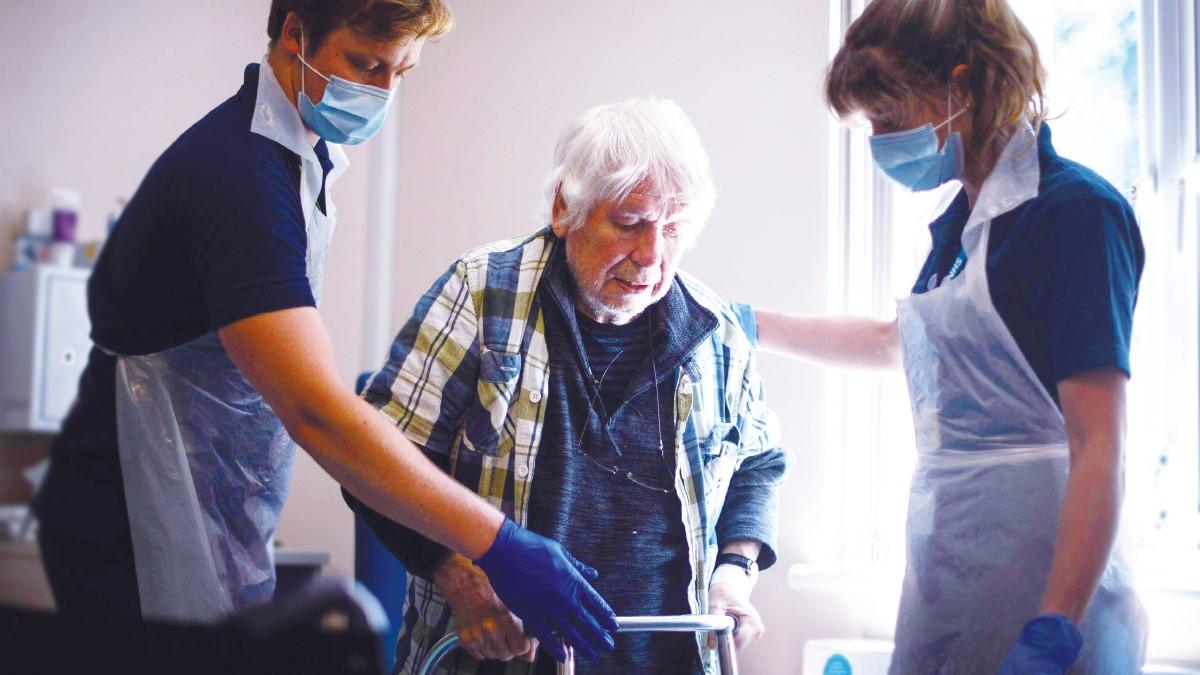Assistant director at the CSP Sara Hazzard says the deterioration in people with long-term conditions during the pandemic needs a national response before the effects are irreversible

The Covid-19 pandemic has had a devastating impact for many people living with a long-term condition.
The physical deterioration caused by greater levels of inactivity has been compounded by the social isolation of lockdown.
At the same time, rehabilitation services vital in managing and helping to support have been suspended and continue to face challenges in clearing the enormous backlog.
There is greater need now than ever before – even before you consider the one million people living with Long Covid, most of whom require some form of rehabilitation.
The CSP contributed to the report published today featuring a collective of organisations calling for an expansion in community rehabilitation to ensure that every patient gets the help they need to live as well as they can, for as long as they can.
We have lent our voice to the report ‘Moving Forward Stronger’, coordinated by the Alzheimer’s Society, pressing for urgent action to combat the risk of a large-scale deterioration in health.
To respond to this emerging threat to our national health, the report echoes our calls for a fully funded national rehabilitation review and strategy.
The CSP is calling for that strategy to deliver:
- increased provision for people in the community so people can access rehabilitation early enough to make a real difference;
- expansion of the rehabilitation workforce – making full use of the long-term growth in physiotherapy graduate numbers, creating new advanced clinical practice roles in the community and using the potential to expand the roles of support workers and exercise professionals;
- designing rehabilitation services that are personalised to meet individual needs, particularly where people are managing more than one long-term condition;
- addressing barriers to access – making it easy for people to be referred or refer themselves, delivering more services in non-medical settings, avoiding digital exclusion and ensuring carers are welcome, too;
- equipping the rehabilitation workforce with the training and education to provide joined-up care for people with a range of mental and physical conditions; and
- working in partnership with individuals, carers and families to ensure that the inequalities in care that contributed to high and unequal death toll from COVID-19 are never repeated.
Even before the pandemic, we suffered years of under-resourcing and underfunding of rehabilitation services. Millions who’d experienced strokes and other long-term conditions were unable to access rehabilitation until they were at crisis point.
Everyone from GPs to the 50-strong Community Rehabilitation Alliance we work with to influence the healthcare system has recognised the urgency for health reform.
We don’t want to build back to before, we need to be better. A Government led review of rehabilitation provision is the only way to ensure that patients’ road to recovery is no longer a postcode lottery where they can only access services too late – or not at all.
There are innovations born of necessity during the pandemic that can change healthcare across the country – now is the time to capture this best practice and scale it up.
Ultimately, we need action that demonstrates that the nation’s health is the highest priority for government as we rebuild from the pandemic. With the right investment and backing, a fairer future is within our grasp.
Number of subscribers: 3